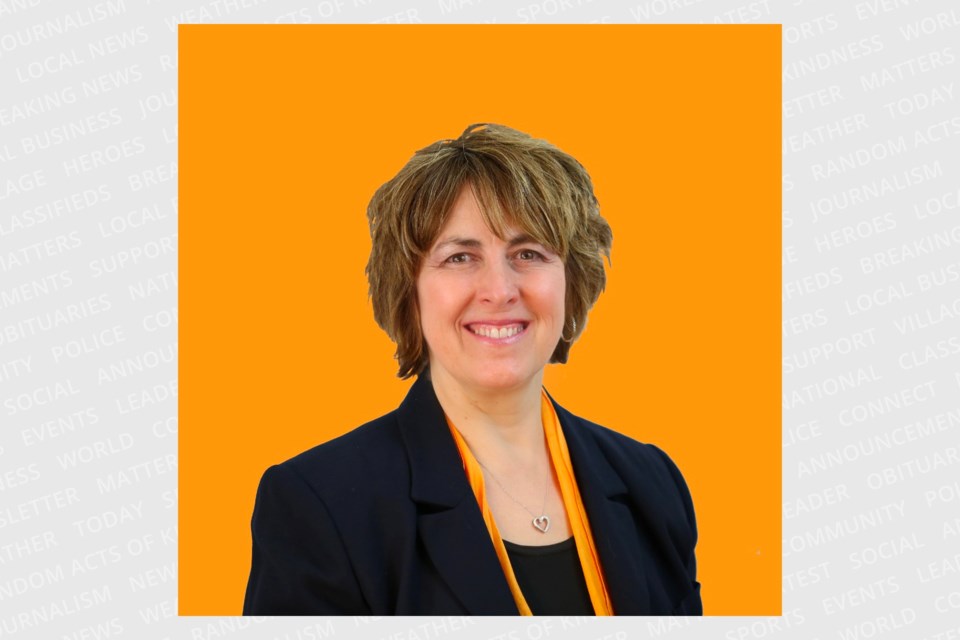Algoma-Manitoulin-Kapuskasing MP, Carol Hughes writes a regular column about initiatives and issues impacting our community.
Artificial Intelligence (AI) is here.
Once mostly the domain of cautionary science fiction and tech enthusiasts, AI systems have taken off and become mainstream seemingly overnight. Discussions surrounding AI have existed for well over half a century when noted computer scientist Alan Turing tried to define the scope of what would make a computer 'intelligent' by developing the Turing Test.
What is clear is that the new wave of AI systems has an impact on serious issues like privacy and data collection, surveillance, intellectual property, national security, disinformation, and more, but regulations haven’t caught up with the speed at which the technology is moving.
Individuals and businesses have been adapting to AI quickly. A recent KPMG Canada survey of businesses notes that 37 per cent of companies are looking at how to use AI chatbot systems (such as ChatGPT, which launched only six months ago) to improve their operations.
A similar percentage, 35 per cent, say they currently use AI in their operations. 40 per cent of those using AI are using them in their call centres. Canadian universities are struggling with crafting new AI policies to combat plagiarism and cheating by students using AI chatbots to write essays.
Last month, a song that sounds remarkably like Canadian rapper Drake called Heart on My Sleeve was developed using AI, prompting streaming services to remove it after it received hundreds of thousands of downloads. Even the Minister of Immigration, Citizenship and Refugees has stated that his department has been using AI to speed up immigration processing times, although he was quick to state that they are not used for application approvals.
AI certainly has its advantages. It can help speed up work processes. It can help perform complicated tasks that would require a comparably large amount of manpower, such as complex data analysis.
It can reduce human error. A good example would be a meteorologist using AI systems to examine weather patterns and get a more accurate picture of forecasts than we are generally used to in the profession. AI systems may, in the near future, assist people with cognitive or language disabilities to better communicate. There is a wealth of applications for AI that can actually be a significant benefit to society.
However, AI is a new wild frontier that has already been ethically concerning.
Artists have already been sounding the alarm of having their works recreated in a different manner using AI. The example using the Heart on My Sleeve song noted earlier was taken down from streaming services because it was in contravention of the copyright of the artists, but this is from one of the world’s best-selling artists who has the resources to fight it.
Small artists don’t have the resources to fight back if AI emulates their work. Deepfakes, which use AI to emulate people’s voices and mannerisms, have the ability to upend our political systems by pushing false statements on social media that political leaders may have never said. This is to say nothing of inherent algorithmic biases, which has already been a huge problem with major companies launching chatbots that have made racist or anti-Semitic statements, at times unprompted.
Canada, like almost every other nation, is behind in developing regulations for the use of AI.
Last summer, the government tabled Bill C-27, the Digital Charter Implementation Act, which is the first major attempt to implement an Artificial Intelligence and Data Act. However, this bill is already out of date, as even though the bill was first tabled a year ago, it predates the rise of most consumer-ready AI systems like ChatGPT and is more focused on the appropriate use and deployment of AI in the private sector. It will help develop that framework, and those guiding principles, but even members of the Industry and Science Committee have stated that it may not be enough. It has been suggested that AI may require its own special joint House and Senate committee to call expert witnesses to help guide public policy.
AI is a proverbial Brave New World, one we must get out in front of. We need guidelines for the responsible and ethical use of AI, and as the technology continues to advance, so too must our scrutiny.
